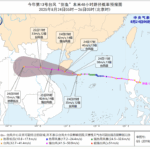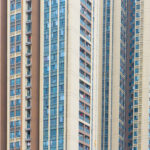I. Revision Background
Since 2013, Luohu District has placed great importance on elevator safety, taking the lead in the city to carry out renovation and major repairs of old elevators with ongoing subsidies. After years of implementation, elevator safety efforts in Luohu District have achieved significant results, receiving recognition from municipal leadership and positive feedback from residents.
The “Implementation Rules for Promoting Renovation of Old Elevators in Luohu District, Shenzhen” will expire on May 11, 2025. In accordance with the spirit of the district government’s December 25, 2024 meeting minutes titled “Summary of 2024 Work on Old Elevator Renovation in Luohu District and Next Steps for Key Work Advancement,” the Luohu Bureau of Market Supervision drafted the “Implementation Rules for Promoting Residential Old Elevator Renovation in Luohu District, Shenzhen” (hereinafter referred to as the “Implementation Rules”).
II. Mission Objectives
From 2026 to 2028, through the implementation of the “Implementation Rules,” Luohu District aims to complete the renovation of an average of 100 old elevators annually. This initiative will eliminate elevator safety hazards, reduce elevator failure rates, effectively prevent elevator safety accidents, and ensure safe elevator operation.
III. Main Content of the Newly Revised Measures
The “Implementation Rules” consist of four chapters with a total of 43 provisions (Chapter I: General Provisions – 11 articles, Chapter II: Renovation Procedures – 25 articles, Chapter III: Supervision and Management – 5 articles, Chapter IV: Supplementary Provisions – 2 articles). They cover standards for old elevator renovation work, scope of application, subsidy standards, establishment of renovation procedures, and supervision and management. The main revisions are reflected in the following six points:
(1) To prioritize meeting the renovation needs of residential elevators for citizens, the “Implementation Rules” only provide subsidies for the renovation of old residential elevators.
(2) To comprehensively improve elevator safety performance and encourage complete elevator replacement, the “Implementation Rules” retain only the “renovation” method, removing the previous “modification” and “major repair” options.
(3) The “Implementation Rules” add provisions for 6S standardized construction of elevator machine rooms, mandating that all elevator machine rooms must pass 6S standardized construction acceptance. This promotes a shift in safety governance toward “preventive measures” and comprehensively enhances elevator safety management levels in Luohu District.
(4) The elevator renovation subsidy application process has been optimized. Elevators over 20 years old can apply for renovation subsidies without requiring a safety assessment, allowing the using unit to apply directly.
(5) The “Implementation Rules” provide a subsidy covering 50% of the renovation cost per elevator, with a maximum subsidy not exceeding 150,000 yuan.
(6) The “Implementation Rules” are valid for 3 years.


